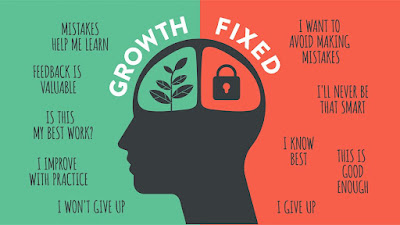Last week, I met with a member of our Leadership Team in my office. This individual came in late, apologizing profusely, and sat down. As we started the conversation, this person apologized again and asked to go to the bathroom. I asked this individual to, first of all, stop apologizing and, of course, let them go to the bathroom. I sat back in my chair, stunned that another adult asked my permission to address a biological need.
My mind wandered to a family dinner in the Ricca house several years ago when Our Boys were in elementary school. At one point in the meal, one of our young men (I won't tell you which one) asked if he could go to the bathroom. I looked at My Wife, an early elementary educator, before becoming a reading specialist and shook my head. What are we doing wrong in education, I wondered aloud, when my own child thinks he needs my permission to go to the bathroom... at home?
As I thought more about that and waited for my Leadership Team member to return to our conversation, I thought of dear friends of ours who have a child who is on the autism spectrum. While their child has many gifts and talents, this young person struggles with communication. In an effort to blend in with the rest of the class, this little one follows directions, does everything that is asked of them in class, and in no way disrupts the learning environment. In short, their child is compliant.
With all three of these examples, I wonder if we emphasize compliance too much in schools? If we do, what are the drawbacks? What are we really teaching?
While this was all fresh in my mind, I saw this graphic on LinkedIn:
With the caveat that this is only one social media platform's opinion, there is no mention of compliance. In fact, LinkedIn believes that adaptability is the most in-demand skill of 2024. None of the top ten are remotely close to compliance.
Before you push back, please know I'm not suggesting that schools become the Wild West. We do need rules to ensure that the humans in our district are safe. We need guidelines to ensure that all students can access their education. Our students need to feel safe, welcomed, and included so they can learn to the best of their abilities and have the courage to make mistakes along the way. This means that we do have to respond to poor behavior.
And there is a kernel of truth in what LinkedIn is offering us, especially in light of my reflections on compliance. Teachers are no longer the keepers of the content, given how ubiquitous smartphones are. When was the last time you argued over a piece of sports trivia or historical fact? We are all victims of the devices in our pockets or close by.
Look around our world. We need problem solvers, not learners who are programmed to recite facts and figures. We need analysts, not learners, who can just tell us what caused the War of 1812 and how those factors won't be repeated in the next potential conflict. We need people who can work through differences, with learners who believe things antithetical to values others hold.
Yes, we need our schools to be places that have predictability and routine. But that predictability and routine need to leave room for creativity, insight, and leadership. That predictability and routine need to leave room for student agency and choice. That predictability and routine need to allow for independent thinking and ideas that are out of the box.
How do we distinguish between compliance and learning? That's what we have to wrestle with to ensure that our students and adults learn and grow to think for themselves. The future of our world depends on it.
Not just when they can go to the bathroom.
 |
| Photo Courtesy of www.sourceofinsight.com |



